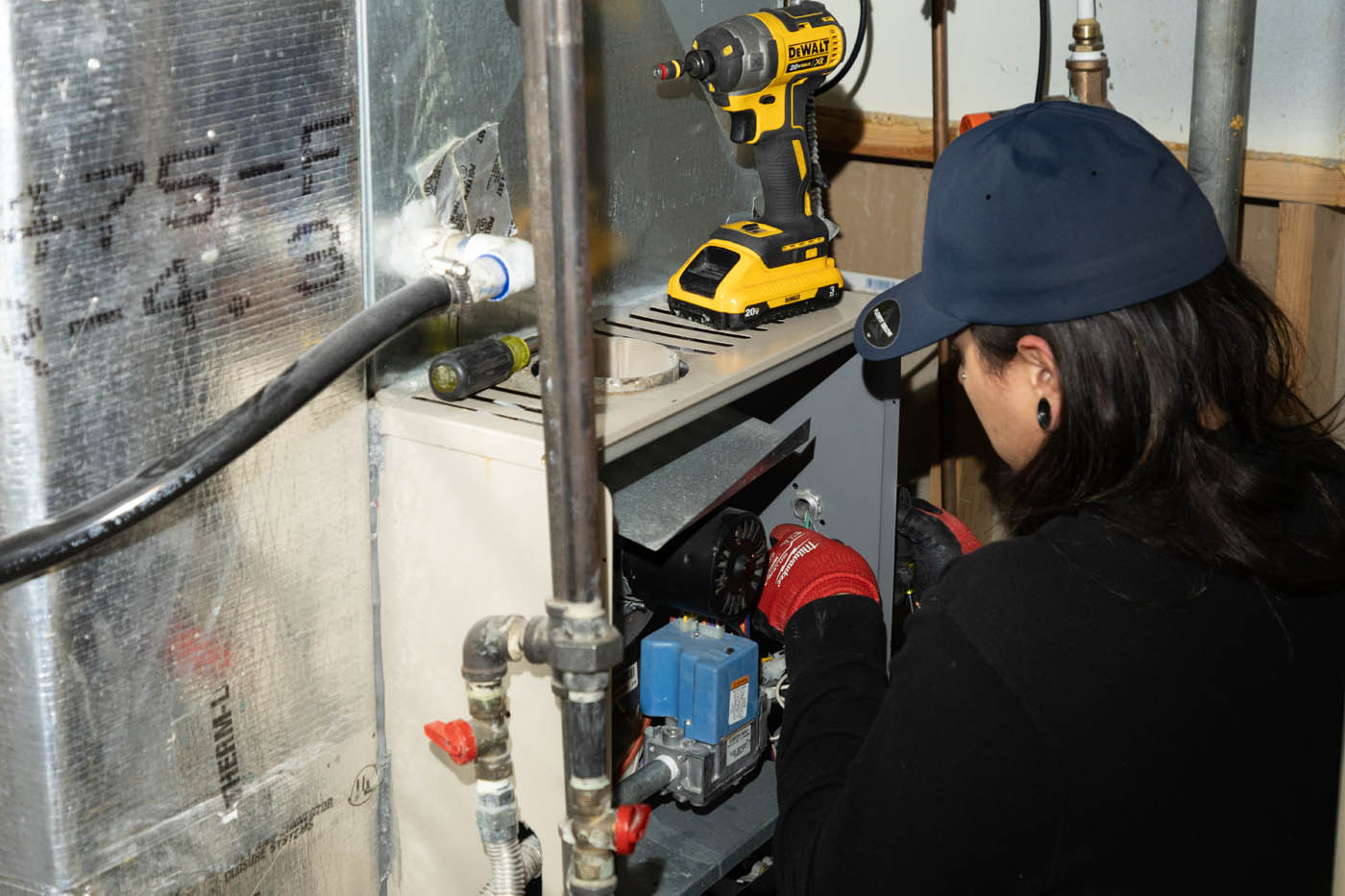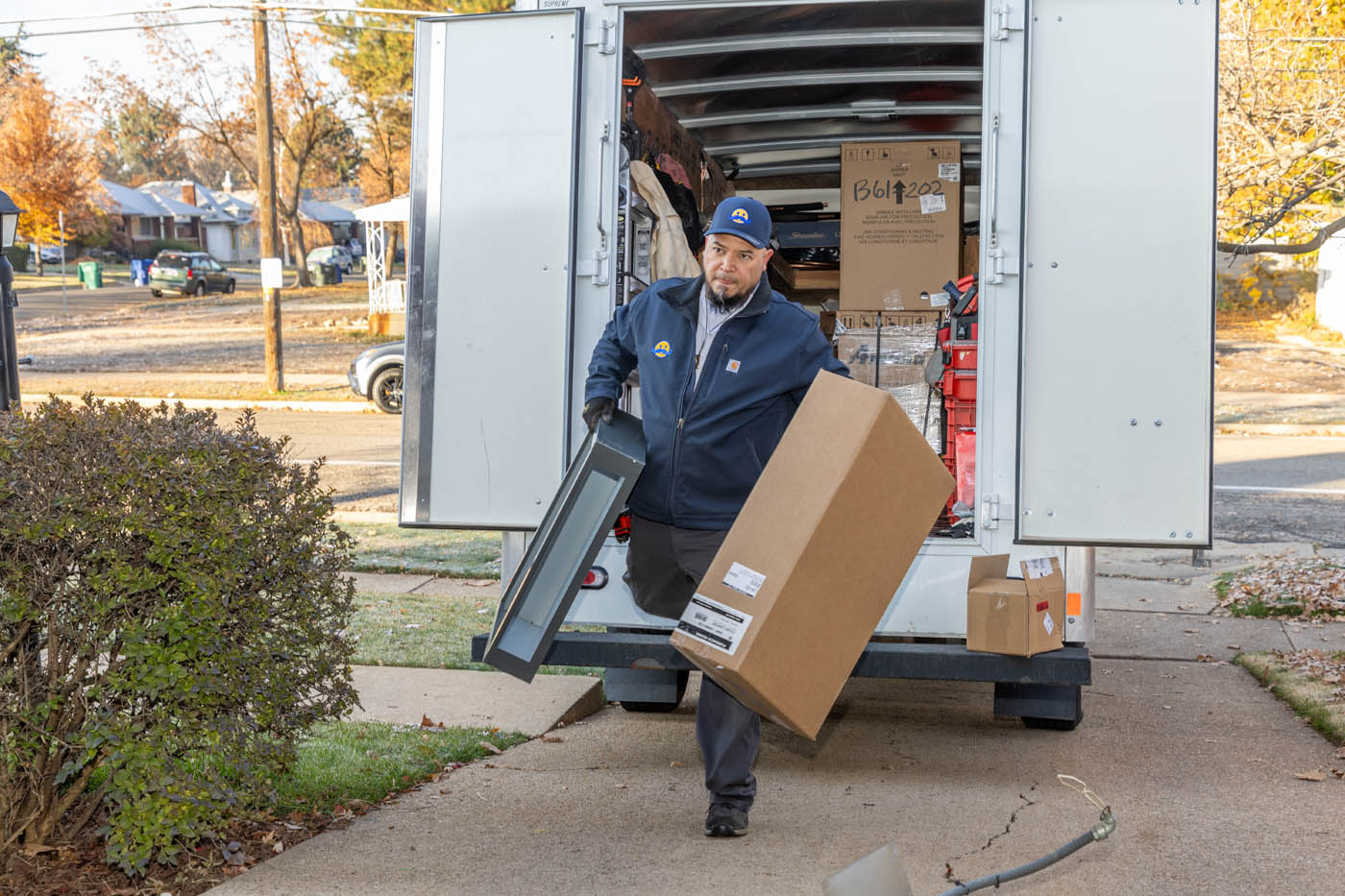New Water Filter and Softener Installation Process
A water filter eliminates impurities, ensuring clean drinking water, while a water softener removes minerals like calcium and magnesium to prevent scale buildup, maintaining appliance efficiency and reducing maintenance. Both are vital for better water quality and system durability.
Installing the correct water filtration or softening system in your new home or addition is the best way to guarantee access to clean and safe water. Our installation process is designed to make sure your new water filter works as expected from the outset:
Water Filter Installation Process:
-
Initial Assessment and Consultation: We will evaluate the property to determine the best location for installing the water filter system, considering factors like water source, plumbing layout, and household water usage. This step also includes product selection. At Absolute Comfort, we help our clients choose the appropriate type and size of water filter system based on their water quality needs and budget.
-
Installation: We install the water filter system according to manufacturer specifications, which may involve mounting the unit, connecting it to the main water supply, and integrating it with existing plumbing.
-
Testing: Our team of installers will conduct tests to ensure that the water filter system effectively removes contaminants and provides clean drinking water.
-
Cleanup and Finalization: After installation, we will clean up the area and provide instructions on how to use and maintain the water filter system.
Water Softener Installation Process:
-
Initial Assessment and Consultation: Prior to the installation, we will evaluate the property's water hardness levels and plumbing system to determine the optimal location for installing the water softener. This step also includes product selection. Our team will assist the client in selecting the appropriate type and size of water softener system based on their water hardness levels and household size.
-
Installation: Our team will install the water softener system, which may involve connecting it to the main water supply, setting up the brine tank and resin bed, and configuring the control settings.
-
Testing: We conduct thorough tests to verify the system's effectiveness in reducing water hardness and enhancing overall water quality in your home.
-
Cleanup and Finalization: We tidy up the installation site and offer detailed guidance on how to use and maintain your water softener system, ensuring it performs at its best.
Helping You Choose The Right Water Filter And Softener
5-star Water Filter and Softeners Products For Exceptional Service
Navigating through the different types of water filters and softeners to find the perfect match for your home can be challenging without prior knowledge. Our team is here to help in this process, ensuring optimal water quality with reliable Halo 5 products.
The most common types of water filter systems include:
-
Carbon Filtration: These filters use activated carbon to absorb impurities and contaminants from water, such as chlorine, volatile organic compounds (VOCs), and sediment.
-
Reverse Osmosis (RO) Systems: RO systems use a semipermeable membrane to remove a wide range of contaminants, including heavy metals, fluoride, arsenic, and total dissolved solids (TDS).
-
UV Water Purifiers: UV purifiers use ultraviolet light to disinfect water by destroying bacteria, viruses, and other microorganisms present in the water.
-
Ion Exchange Filters: These filters use ion exchange resins to remove dissolved minerals like calcium and magnesium, which cause water hardness.
-
Sediment Filters: Sediment filters remove larger particles and debris from water, such as sand, silt, and rust, improving water clarity and taste.
The most common types of water softener systems include:
-
Salt-Based Ion Exchange Water Softeners: These systems use ion exchange resin beads to replace calcium and magnesium ions (which cause water hardness) with sodium or potassium ions, resulting in softened water.
-
Salt-Free Water Conditioners: Unlike traditional water softeners, salt-free conditioners use a template-assisted crystallization (TAC) or catalytic media to prevent minerals from adhering to surfaces, reducing scale buildup without removing minerals from the water.
-
Dual-Tank Water Softeners: Dual-tank systems feature two resin tanks that alternate between regeneration cycles, ensuring continuous softened water supply even during regeneration.
-
Magnetic Water Softeners: Magnetic softeners use magnets or magnetic fields to alter the structure of water molecules, reducing scale buildup in pipes and appliances. However, their effectiveness is debated.
-
Electronic Water Descalers: Electronic descalers use electromagnetic waves to prevent scale formation by altering the behavior of minerals in water, but unlike traditional softeners, they do not actually remove minerals.
Absolute Comfort recommends Halo 5 for its effective water treatment capabilities. Halo 5 systems combine water filtration and softening, addressing various water quality issues efficiently. They are recognized for low maintenance needs and support environmental sustainability by reducing bottled water use and waste.


